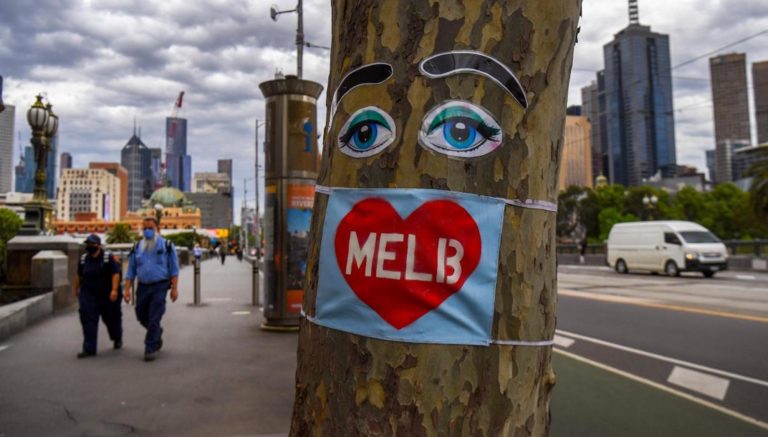
Reframing the thought experiment
There’s no place like utopia. Coined by Sir Thomas More in the sixteenth century, the word ‘utopia’ is a play on the Greek for ‘no place’ and ‘good place’. But is an ideal society unattainable – or optimal?
Professor Carolyn Evans, Vice Chancellor and President, Griffith University
At Griffith University we recognise the critical role that universities play in achieving the sustainable development goals in line with Griffith’s objective to create a brighter future for all. We embed the sustainable development goals in all we do in teaching, research, engagement, and beyond the goals, align with our deeply held values around First People’s recognition, environmental responsibility, diversity and inclusion and social justice.
Through this series I’ll explore some of the 17 Sustainable Development Goals with Griffith experts and partners, we’ll examine what each of the goals is about what must be done to address them and how we can learn from the work on these goals already being carried out around the world.
Professor Evans
For our first video, we’ll discuss Sustainable Development Goal 16 Peace, Justice and Strong Institutions. With me today to discuss this topic are Professors Sue Harris Rimmer and Professor AJ Brown. Professor Rimmer is an expert on human rights law and the Director of Griffith’s Policy Innovation Hub, co-convener of the Griffith Gender Equality Research Network and leader of the Climate Justice theme in our Climate Action Beacon. Professor Brown leads the Public Integrity and Anti-corruption Research Program in our Centre for Governance and Public Policy and is an expert on Whistle blower protection he’s also a global board member of the world anti-corruption organisation Transparency International. Sue Harris Rimmer, AJ Brown welcome.
So, can you start Sustainability Development Goal 16, what are some of the key elements in that as far as your work is concerned?
Professor Susan Harris Rimmer
I mean all the Sustainable Development Goals are very interlinked but I feel like this one is the underpinning goal for them all because the ability to sustain human thriving is very much dependent on a state of peace. And we have found that out through the pandemic too, that you need this underlying stability in which to thrive. So Goal 16, the first target is to prevent violent deaths through conflict so this is a what you might say is the heart of the United Nations is to prevent war and to stop armed conflict and to stop those armed conflicts that breach the humanitarian laws I suppose, so that’s the first goal is very important to my work on international humanitarian law the laws of armed conflict and transitional justice to stop cycles of violence that lead to violent deaths, particularly civilians. And then the second goal which is also very important to me which is about ending the abuse and trafficking of children across borders which is also a theme in the Security Council. Then the third one which is very important to us all of course, is about responsive and inclusive decision making. We’ve seen how that’s panned out in the pandemic that you need institutions that have, I guess, enough of care of the body politic that they represent those people so they can make good decisions on their behalf and where you don’t get that kind of inclusive representative governance, you get policies that don’t value citizenship. So these they’re the three elements of the of this Goal that I’m most interested in but I do see it as underpinning human thriving generally.
Professor Evans
Indeed. And AJ, you particularly work on strong institutions so what does this goal have to say in terms of your work?
Professor AJ Brown
Well I mean as you said it is an underpinning goal because it’s the second last goal out of all of the global Sustainable Development Goals, the last one is partnerships and collaboration between sectors and institutions and countries and regions, but all of the goals and the partnerships all rely on peace, security, stability, and strong institutions. So it’s about sustainability in terms of safety and security at an individual level within communities in terms of crime and protecting human rights and safety of women, children, any vulnerable community but all of that hinges upon having good governance systems. And so the targets for Sustainable Development Goal 16 that really relate to that range from everything from inclusive participatory institutions to protection of the rule of law, through to fighting bribery and corruption, stopping not just trafficking of people but stopping trafficking of money because actually the undermining of governments around the world that is most corrosive very often is brought about through bribery, through corruption, through loss of revenue through crime. It’s actually a really tough Sustainable Development Goal because everything else sounds wonderful and everything else should, in theory, be easy to work on. In theory, it’s not but in theory whereas Sustainable Development Goal 16 because it’s about stopping war, stopping conflict, intervening or finding ways to defuse political conflict around the world and actually fighting crime including leaders who are stealing from their own people. It’s highly political and sort of highly fraught and therefore in many ways it’s not only underpinning but in many ways it’s one of the most challenging of all the goals.
Professor Evans
And AJ, when you think about the point in time we’re at now at and look around the world, what are some of the big issues that where Sustainable Development Goal 16 might make a difference or might be relevant?
Professor Brown
Well I think twenty or thirty years ago we were hoping for a world in which peace and justice would just prevail, you know, there was sort of a magnificent consensus around liberal democracies triumphing and war going away, and of course, not everybody believed that and we see a world that’s very fragmented, very fractious, very conflict ridden, so there’s enormous reasons why worrying about peace and security around the world is really big issue. And we live it in a time when multilateralism generally, has been weakening, so the ability of people to collaborate, to address some of those big peace and security issues is really, by no means guaranteed. It hangs in the balance. But we also see such an enormous divide range right across the world of countries from highly corrupt regimes through to regimes that may not be corrupted in and of themselves, but which are facilitating international money flows that enable international crime to occur. And many develop advanced democracies are complicit in those international systems. So it’s really like we’re finally waking up to the fact that we do live in one world that it’s an international system that we live in, that you can’t just isolate these things in individual countries and say one country is really clean and the other country is really dirty, because everybody’s actually involved in this sort of these networked problems.
Professor Evans
And so I’m sure you’d agree that that we do live in the one world and that a problem anywhere has repercussions everywhere but what are some of the big issues that you’re seeing at the moment that are relevant to Goal 16?
Professor Harris Rimmer
The U.N. Secretary General tried to call on all U.N. member states to actually declare a moratorium during the pandemic. So this was this ambitious idea that while the world is facing a global pandemic is not the time for armed conflict, can we pause surely a pandemic will stop some of these conflict situations from escalating and that I’m afraid didn’t happen in Tigray and Syria and Myanmar and other places, Afghanistan. So what you also saw during this period where the U.N. was trying very hard for states to step up was we saw humanitarian responses having to be reframed because suddenly there wasn’t the ability to access places. What does a refugee camp look like during COVID-19? How do you evacuate people without causing them further risk of infection? Incredibly complicated issues for humanitarian access and safe corridors so that’s been a mind-blowing challenge for the humanitarian community, so I’ve been very focused on how people are transversing that and I’ve also been very interested in this idea of the pandemic itself creating conflict in the sense of vaccine diplomacy and that exacerbation of inequality in and between countries that’s been really highlighted as a result of COVID. But, at the same time, we’ve got to start thinking this was a non-traditional security threat so we’re thinking about the ability of our security organizations around the world including the Security Council at the U.N., to really deal with non-traditional security threats. They’ve been so focused on terrorism, but actually, it was a pandemic that’s caused the most damage to most countries. So you know where is the actual risk to our security coming from? Maybe we have a very narrow idea of even in this Goal, very focused on conflict deaths whereas in my work would say actually I think intermittent partner violence is what we call ‘the shadow pandemic’ is as important as narrow definitions of armed conflict. But the other issue, this is the first year ever the security council has been thinking about climate change as a security risk. Now that’s a bit slow if you ask me, and if you think about the pandemic as also being a symptom of zoonotic diseases be exacerbated by climate change and human wildlife interactions they’re the kinds of debates we need our security institutions to be having. So I’ve been thinking about that very hard and as yet I do not have the solution.
Professor Evans
But I think that’s the way we’ve got to travel. Well, we won’t necessarily be able to come to all the solutions in our short chat today but, I think it’s important that we focus on where progress has been made too. We can spend a lot of time and we should spend a lot of time thinking about the problems and the complexities which you both outlined beautifully here, but where have we seen some good examples where countries or institutions or international organizations have made progress at AJ?
Professor Brown
Well it’s interesting there are elements of the sort of the ‘building back better’ concept which at an international level you can see both international institutions and national governments following through on. It’s very tough and it’s going to take much longer, but they’re following through on it with the work that I do with Transparency International and I’ve had the privilege of having a fair bit to do with the leadership of T.I.’s next strategy for fighting corruption for the next 10 years. What’s very clear is that there’s a lot of leadership and support from international financial institutions the International Monetary Fund has had a project going which civil society has been part of throughout the pandemic called tracking the trillions because Goldman Sachs has sort of estimated that the total cost of fiscal stimulus for the world to fight COVID economically in 2020 was about six trillion dollars and the total cost of corruption in terms of theft, bribery, income loss through bribery around the world as estimated by the World Economic Forum to be about five trillion dollars. So if we if we successfully clamp down on corruption we would actually have been able to pay for the economic response to the pandemic. It would give us that sort of resilience but I was quite amazed that as people were blowing the whistle on the problems to do with the pandemic right back at the beginning, that people recognize the value of individuals who step up from within institutions to point to the breakdown of or slow responses in what governments or other agencies are doing. Everywhere from China with the late Dr Liang who was vindicated by the Chinese authorities when he was mistreated for having tried to sound the alarm very quickly and the Chinese government have more or less said no actually he did the right thing, he was a hero. Through to our own domestic response when hotel quarantine has gone a bit dodgy and we can extrapolate from hotel quarantine in the pandemic to a million other problems even after the pandemic, to the things that should worry us about keeping government honest and performing well. People can worry about the bureaucracy but it just takes one person to put up their hand and say no hang on a minute, we’ve got a problem here and suddenly governments move and things change. So there is, I think hope, in the context of the pandemic but more broadly to see when things get really tough when we’re really focused on people’s well-being on a crisis situation suddenly the things that really matter leap out at people and that includes the ability of people to speak up and the need for institutions to respond quickly, fairly, equitably, spend their money wisely and get the job done quickly. So there are lessons from this period of history I think for being able to achieve peace justice and stronger institutions.
Professor Evans
That’s wonderful and I suppose also that we need courageous individuals, but we also need strong institutions. That the two are required at the same time and good researchers working and excellent with the strong institutions and the courageous individuals indeed or what gives you cause for optimism Sue?
Professor Harris Rimmer
Well absolutely. I think as a result of the pandemic you have people aren’t really understanding the value of good governance to their lives and the very valuable work public services do around the world. But for me, that the I suppose the shining light is this idea that prevention is so important. So pandemics have been a risk in every risk analysis I’ve seen from every government and every multilateral institution for decades but our business continuity planning, our strategies, were not developed, not scenario planned in the way that we do for war, for example, so I’m hoping now there’s this much stronger level of granularity around our planning around non-traditional threats and the value of prevention. So I’ve seen that come through from the current U.N. system very much focused on complex conflict prevention work, on preparedness on you know, this rules based order idea, needing rehearsal, needing scenario planning. We saw the U.S. come out with a really major conflict prevention strategy for the first time, so these are these for me are elements of hope that we will shift our international system from being reactive to being preventative, into seeing human security as the goal rather than much more limited traditional national security.
Professor Evans
So lots of causes for optimism, lots of individuals and institutions that have made a good contribution but also, a very long way to go before the aspirations of Sustainable Development Goal number 16 are met. Sue Harris Rimmer, AJ Brown. Thank you very much.
 Professor Carolyn Evans is Vice Chancellor and President of Griffith University.
Professor Carolyn Evans is Vice Chancellor and President of Griffith University.
Carolyn graduated with degrees in Arts and Law from the University of Melbourne and a doctorate from Oxford where she studied as a Rhodes Scholar. Carolyn taught law at Oxford and Melbourne Universities. Prior to commencing at Griffith, Carolyn held the positions of Dean of Law, Deputy Vice Chancellor (Graduate and International) at the University of Melbourne. Carolyn works in the areas of law and religion and human rights and was awarded a Fulbright Senior Scholarship in 2010 to work on comparative religious freedom.
In 2019, Carolyn was elected as a Fellow of the Academy of the Social Sciences in Australia and became a member of the organisation, Chief Executive Women. In 2019, she became Chair of the Innovative Research Universities group.
Follow Carolyn on Twitter
 Professor A J Brown is leader of the Centre for Governance & Public Policy’s public integrity and anti-corruption research program, and professor of public policy and law in the School of Government & International Relations.
Professor A J Brown is leader of the Centre for Governance & Public Policy’s public integrity and anti-corruption research program, and professor of public policy and law in the School of Government & International Relations.
A 25-year veteran of developments in Australia’s integrity systems, since 2010 he has been a boardmember of Transparency International Australia, the world anti-corruption organisation, and in 2017 and again in 2020 was elected to Transparency International’s global board, where he led the development of its worldwide strategy ‘Holding Power to Account, 2021-2030’. Since 2005 he has led six Australian Research Council projects into public integrity and governance reform, including two establishing the Australian Constitutional Values Survey, three into public interest whistleblowing, and the 2020 Australian Research Council Linkage Project report, ‘Australia’s National Integrity System: The Blueprint for Reform’. In 2012, his biography of Michael Kirby: Paradoxes & Principles was shortlisted for the Prime Minister’s Literary Award, Walkley Book Award and National Biography Award.
He was the 2017-18 President of the Australian Political Studies Association, and a member of the Commonwealth Ministerial Expert Advisory Panel on Whistleblower Protection (2017-2019). He is a Fellow of the Australian Academy of Law.
Follow AJ on Twitter
 Professor Susan Harris Rimmer is the Director of the Griffith University Policy Innovation Hub. She was previously the Deputy Head of School (Research) in the Griffith Law School and prior to joining Griffith was the Director of Studies at the ANU Asia-Pacific College of Diplomacy.
Professor Susan Harris Rimmer is the Director of the Griffith University Policy Innovation Hub. She was previously the Deputy Head of School (Research) in the Griffith Law School and prior to joining Griffith was the Director of Studies at the ANU Asia-Pacific College of Diplomacy.
With Professor Sara Davies, Susan is co-convenor of the Griffith Gender Equality Research Network. Sue also leads the Climate Justice theme of the new Griffith Climate Action Beacon.
Susan is the 2021 winner of the Fulbright Scholarship in Australian-United States Alliance Studies and will be hosted by Georgetown University in Washington DC.
Follow Sue on Twitter

There’s no place like utopia. Coined by Sir Thomas More in the sixteenth century, the word ‘utopia’ is a play on the Greek for ‘no place’ and ‘good place’. But is an ideal society unattainable – or optimal?

In the first months of 2020, the vibrations of the Earth changed. As monitored by a global network of seismologists, the average daily displacement of the surface of the planet – measured in nanometres, or increments of one billionth of a metre – fell around the world, from Nepal to Barcelona to Brussels.

Last year I found my dry cleaner sewing by the light of a single lamp in his darkened store, in a scene reminiscent of an 18th-century still-life oil painting. Only in that moment did I fully grasp the meaning of the words “the economic cost of COVID-19”.